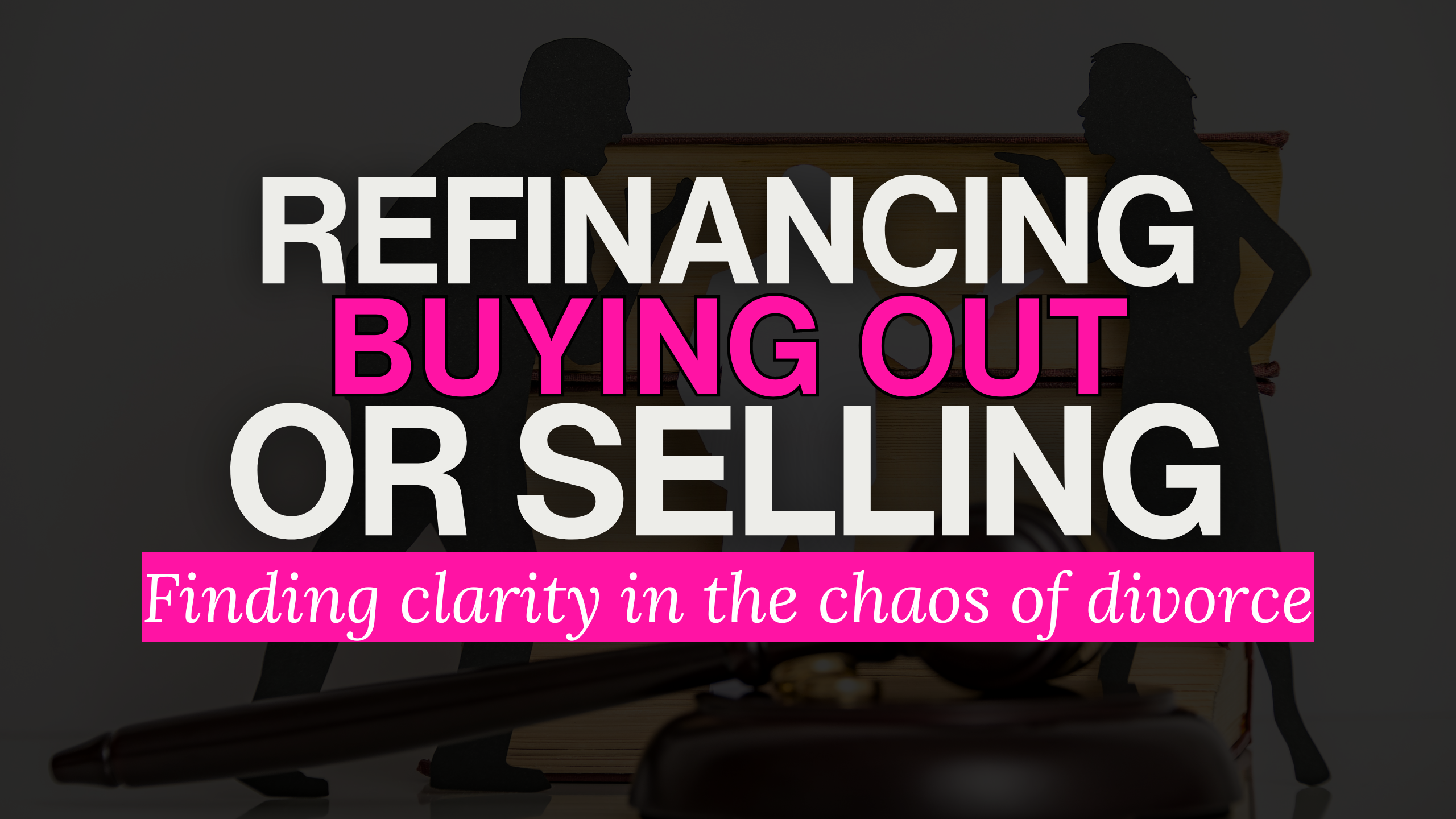Refinancing, Buying Out, or Selling – Finding Clarity in the Chaos of Divorce

Once you’ve decided whether to stay in your home or move on, the next layer of complexity involves what to do with the mortgage. This is often a key sticking point in divorce, as the mortgage is tied to both your financial future and the legal process of separating assets. You have three primary options: refinancing the mortgage in your name, buying out your spouse’s share, or selling the property.

Refinancing can be a good solution if you want to stay in the home and can qualify for a loan based on your individual financial circumstances. This option gives you the chance to start fresh by removing your spouse’s name from the mortgage and making it solely yours. However, be aware of the costs involved, such as closing costs and the possibility of higher interest rates. You’ll also need to ensure your credit is strong enough to take on a loan independently.

Buying out your spouse is another avenue to explore if you want to retain the home. This option allows you to keep the property, but it requires you to compensate your spouse for their share of the home’s equity. This can be tricky, as it often involves tapping into savings, investments, or taking on additional debt. It’s critical to consider whether the buyout will leave you financially secure.

Finally, selling the home may provide the cleanest financial break, but it’s not without its own emotional and logistical challenges. This option requires both parties to work together during the sale, which can be difficult if emotions are running high. However, selling offers a chance to divide the equity, allowing each person to start fresh.

Each of these options comes with its own set of complexities, and making the right choice depends on your unique situation. Consulting a real estate professional with experience in divorce-related transactions can be invaluable. They can provide an objective perspective, offer insight into the current market, and help you understand the financial impact of each decision.
Expert Tip: The mortgage is one of the most critical pieces of your financial puzzle post-divorce. Don't make decisions in isolation—consult your financial advisor and a real estate professional who understands the nuances of divorce to find the best path forward.
